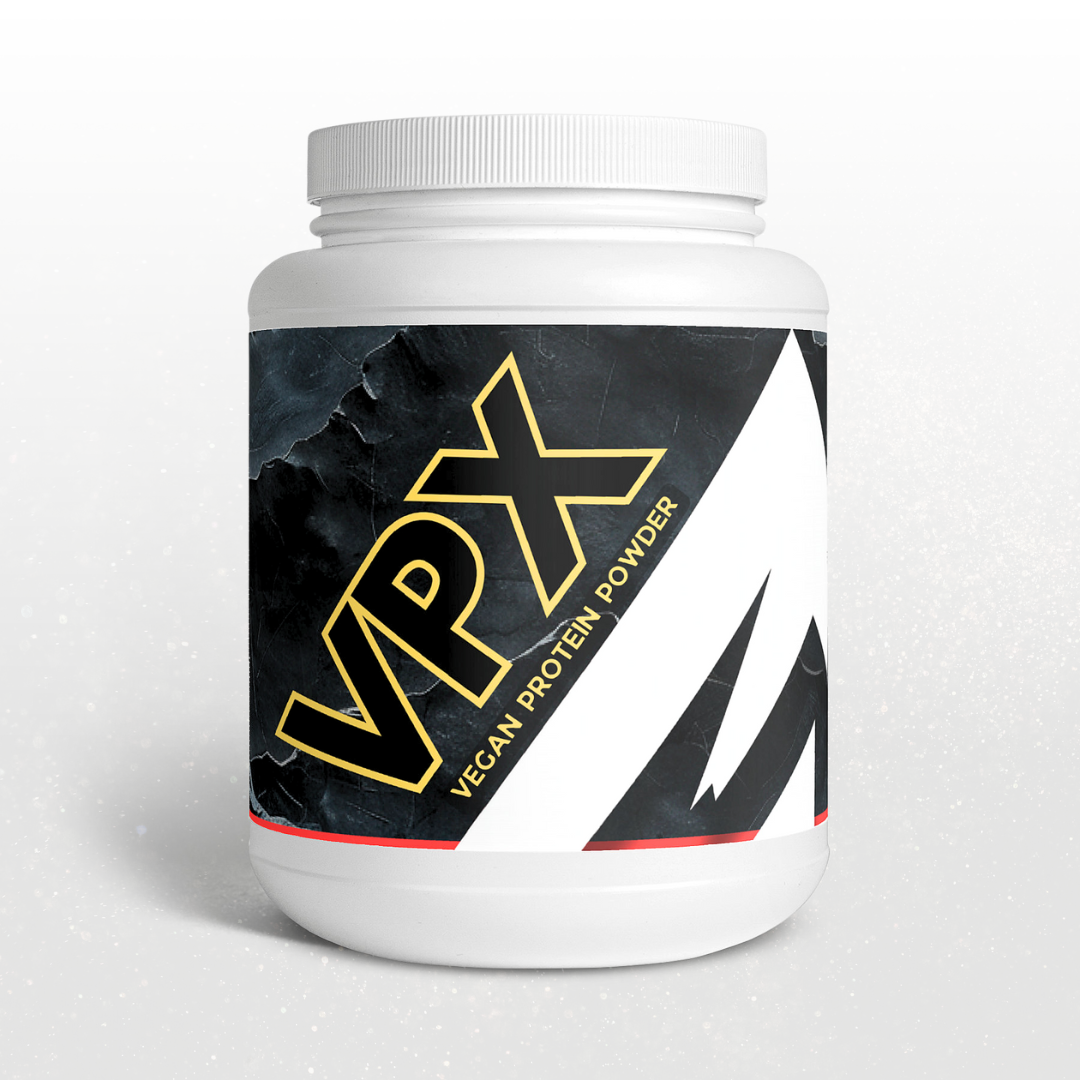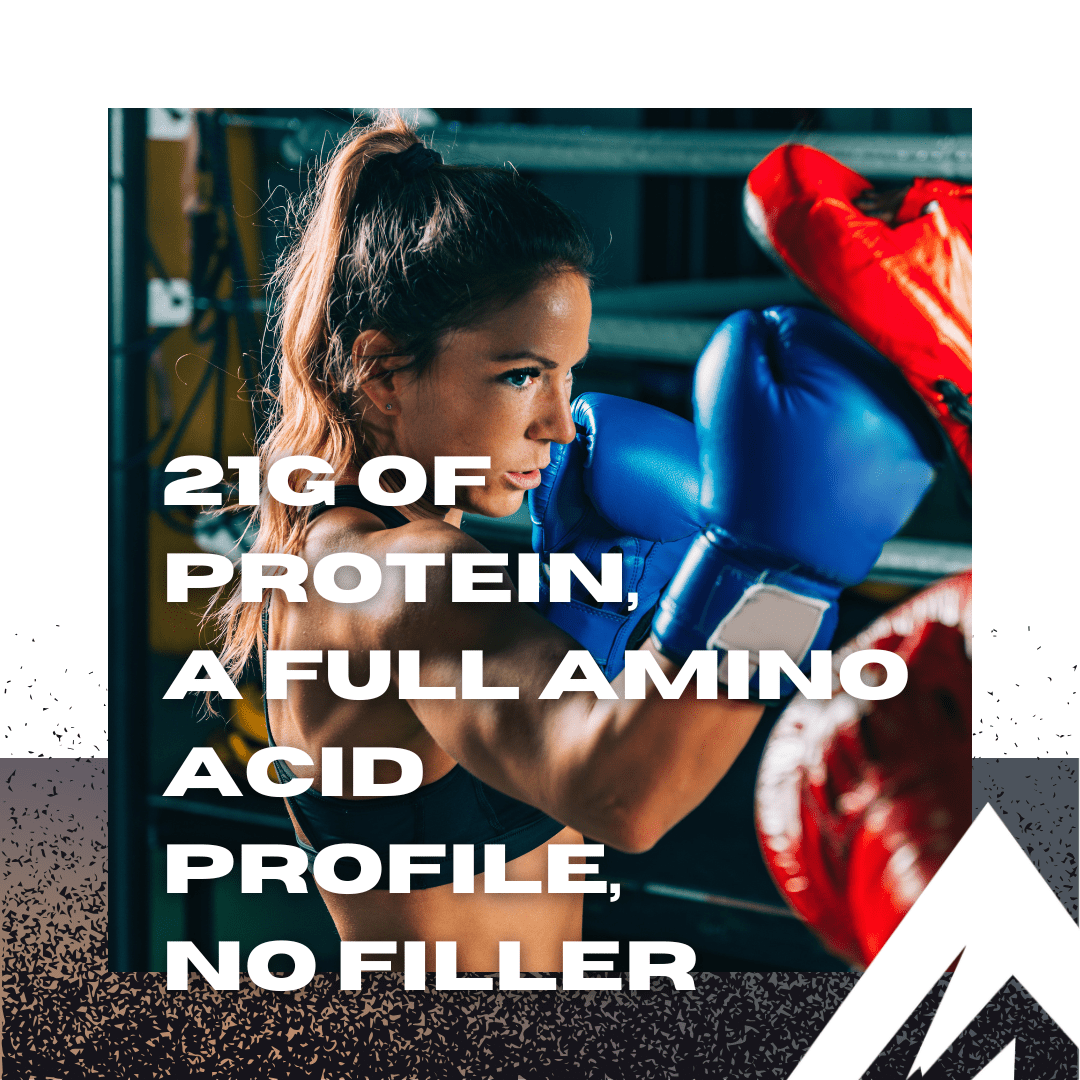VPX Vegan Protein Powder
VPX Vegan Protein Powder
Couldn't load pickup availability
VPX Vegan Protein – Clean, Powerful Plant-Based Fuel
When you want more out of your active lifestyle without the compromise.
VPX Vegan Protein delivers 21g of high-quality plant-based protein with a complete amino acid profile to support your active lifestyle. Made without soy or gluten, this clean formula blends seamlessly into smoothies, recipes, or post-workout shakes. Fuel your day with pure, plant-powered nutrition.
VPX Plant Protein Advanced Benefits
VPX Plant Protein Advanced Benefits
High-Quality Plant Protein: Each serving delivers 21g of a powerful blend of Tendra® Fava Bean Protein Isolate and YESTEINTM Fermented Nutritional Yeast Protein to support muscle recovery and growth.
Low-Calorie and Nutrient-Dense: With just 110 calories per serving, it provides all the essential amino acids necessary for muscle repair and growth, along with apple pectin powder for added digestive support.
Digestibility and Allergie: Whey protein is derived from milk and may cause digestive issues for those who are lactose intolerant or have dairy allergies. On the other hand, VPX Plant Protein is lactose-free, soy-free, and gluten-free. Includes sunflower lecithin for enhance mixability and an additional brain health bonus.
Weight & Health Management: Vegan protein powders like VPX Plant Protein are free from cholesterol and typically lower in saturated fats compared to whey protein. This can contribute to better heart health and easier weight management. Plus, the combination of protein and fibre helps increase the feelings of fullness throughout the day.
Can Plant-Based Protein Compete?
Can Plant-Based Protein Compete?
Maintaining an active lifestyle on vegan diet is easier than ever. Tailor your nutrition to meet the demands of your workout without compromising on essential nutrients.
VPX plant-based protein ensures you get enough protein before and after working out enhancing your fitness, endurance, and recovery.
Pre-Workout Nutrition: Fuel up with high-carbohydrate foods like oatmeal, cereals, whole grain bread, rice, pasta, quinoa, legumes, and colourful fresh fruit. These foods provide the energy needed for a tough training session.
Post-Workout Recovery: Replenish your body with higher carbohydrate foods and adequate protein to aid recovery. Choose proteins that provide a balanced amino acid profile to support muscle repair and growth.
Nutritional Profile: Both vegan protein powder and whey protein offer high-quality protein but differ in their amino acid profiles. Whey protein is a complete protein, containing all nine essential amino acids in optimal proportions. Some vegan options fail in this area, however, VPX Protein Powder goes above and beyond and provides the complete amino acid profile, ensuring you get the necessary nutrients.
How Much Protein Do You Need as a Vegan?
How Much Protein Do You Need as a Vegan?
The same as if you were to use non-plant-based proteins. Protein requirements vary based on individual needs. For adults over 19, the dietary reference intake is 0.8 grams per kilogram of body weight.
Vegans should aim for a slightly higher intake due to the lower digestibility of plant-based proteins. For highly active individuals, protein needs range from 1.2 to 1.7 grams per kilogram of body weight.
Product Info
Product Info
Ingredients: Tendra® Fava Bean Protein Isolate, Natural Flavors, YESTEINTM Fermented Nutritional Yeast Protein, MCT Oil Powder, Apple Pectin Powder, Sea Salt, Stevia Extract (leaf), Silicon Dioxide.
Flavour: Vegan Vanilla and Chocolate
Collections: Kodiak Gold Elite Proteins, The Kodiak Gold Supplement Catalogue
Pair With: INEX Natural Gut Wellness Supplement, K2 100% Pure Creatine, Vert Athletic Greens
Learn More: Plant-Based Protein: The Ultimate Guide
Suggested use: As a dietary supplement, adults mix two (2) scoops with 6-8 oz. of water or favourite beverage daily. For best results, take 20-30 minutes before a meal with 8 oz. of water or as directed by your healthcare professional.
Manufacturer's country: USA
Product amount: 29.77 oz./844g
Gross weight: 2lb/910g
Caution: Do not exceed th recommended dose. Pregnant or nursing mothers, children under the age of 18, and individuals with a known medical condition should consult a physician before using this or any dietary supplement. KEEP OUT OF THE REACH OF CHILDREN. DO NOT USE IF SAFETY SEAL IS DAMAGED OR MISSING. STORE IN A COOL, DRY PLACE.
The Food and Drug Administration (FDA) has not evaluated the benefits but has approved the product as safe for its intended use. This product is not intended to diagnose, treat, cure or prevent any disease.





Vegan Protein FAQs
Is vegan protein a worthwhile supplement?
When it comes to building o repairing muscle, protein is key. But does it matter if your protein source is plant-based or animal-based?
While animal proteins were once thought to be superior for muscle mass, recent studies reveal that plant-based proteins from sources like nuts and beans can be just as effective. Which are key ingredients in VPX.
Are there benefits to choosing plant protein?
Along with supporting muscle growth, plant based proteins can help reduce the risk of heart disease, type 2 diabetes, and certain cancers, while also improving sleep, immune function, and digestive health.
Plus the added benefit of choosing a vegan protein is that it's better for the world environmentally. Win, win.
Can I gain muscle with vegan protein?
Yes. Building muscle with plant-based protein is just as effective as with animal-based sources. Make sure when you buy a vegan protein powder, it has the full amino acid spectrum for optimal muscle growth.
To build or maintain muscle, regardless of your protein choice, it's essential to focus on hypertrophic training. This means lifting weights in the optimal range for muscle growth. Aim for 3-5 sets of 8-12 reps, with 60-120 seconds of rest between each set.
What 100 grams of protein looks like for vegans.
Click here for a visual image of the 79 grams of plant-based protein mentioned below. Or mix a scoop of powder into your favourite smoothie.
What you see isn't totally what you get with the amount of protein here:
- 1 ounce of nuts (5 grams)
- ½ cup of rolled oats (5 grams)
- A protein granola bar (8 grams)
- Two slices of rye bread (10 grams)
- ¼ cup of protein granola (10 grams)
- One tablespoon of hemp seeds (4 grams)
- Two tablespoons of chia seeds (10 grams)
- Two tablespoons of peanut butter (7 grams)
- One scoop of plant-based protein powder (20 grams)
This amounts to 79 grams of protein. If we double up on the mixed nuts, chia seeds and hemp seeds, this brings us to 93 grams of protein. You could add an extra tablespoon of peanut butter or eat a full cup of oats, instead of half a cup, to come closer to 100 grams.
This plate also excludes high-protein vegan meat substitutes, such as tofu, tempeh or plant-based meats like the Impossible Burger. Those food sources can make it easier to get 100 grams of protein for someone who eats a vegan diet.
Is it good to take vegan protein powder?
While most people easily meet their protein needs through meat, poultry, fish, dairy, and eggs, vegetarians and vegans can also achieve adequate protein intake by incorporating foods like lentils, beans, nuts, and seeds. For example, just one cup of cooked lentils provides 18 grams of protein.
However, a vegan diet requires planning to ensure nutritional balance. If you're finding it challenging to meet your protein needs, a vegan protein powder can be a convenient and stress-free solution. Simply add a scoop to your smoothie or drink for an extra protein boost.
What to look for when choosing a vegan protein.
As more people embrace vegetarian, vegan, or flexitarian diets, plant-based protein has gained popularity. While it offers numerous benefits, it also presents several challenges that are important to consider.
Incomplete Amino Acid Profile
One of the main issues with plant-based proteins is their incomplete amino acid profile. Unlike animal-based proteins, most plant proteins lack one or more essential amino acids, such as lysine or methionine. To avoid muscle breakdown and ensure balanced amino acid intake, it’s crucial to combine different plant protein sources.
Lower Protein Quality
Plant-based proteins generally have lower protein quality compared to animal sources. Factors like anti-nutritional elements (e.g., phytates and protease inhibitors) can reduce protein digestibility and bioavailability, meaning you might not be absorbing as much protein as you think.
Limited Essential Nutrients
Plant proteins often lack key nutrients like vitamin B12, iron, and zinc, which are more bioavailable in animal products. This can put individuals on plant-based diets at risk of nutrient deficiencies.
Allergenic Potential
Some plant-based proteins, such as soy, wheat, and nuts, are common allergens. Individuals with sensitivities or allergies may struggle to find suitable alternatives, making it challenging to maintain a balanced diet.





